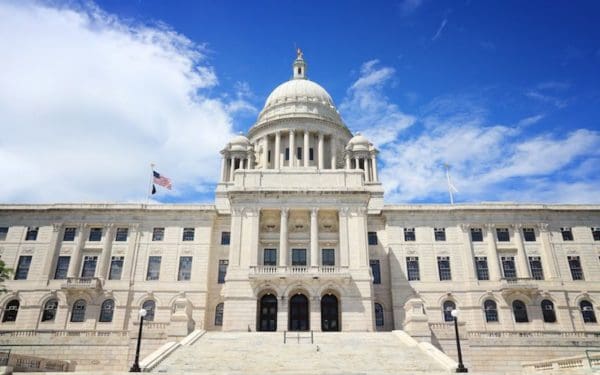
Rooftop solar is a key part of any clean energy roadmap for New Hampshire. Photo: Shutterstock
The New Hampshire Public Utilities Commission recently issued a long-awaited decision about the future of rooftop solar and other clean, local energy in the Granite State — and the result is a short-term loss but a long-term gain. While there are short-term setbacks in the order, it also takes major steps forward to make clean, local energy a central part of the state’s energy planning.
The Setback: Cuts to Net Metering
In its decision, the Commission makes cuts to a critical program called “net metering,” which gives families and businesses a credit on their electricity bills for any power their solar panels provide to the grid. Starting in September, these cuts will shrink that credit for any family or business installing new solar panels. But while we predict these cuts will discourage some investments in solar panels, we’re optimistic that the cuts are not large enough to result in a major slow-down of solar development.
It’s also important to know that the new, smaller credit may be replaced with a better, bigger one in the future. The Commission admits that these cuts aren’t based on real facts or data, so it’s going to conduct a study on the full range of benefits that local solar provides to the state. These can include health and safety benefits such as fighting climate change and reducing air pollution, as well as a stronger electric grid and less need for expensive and ugly transmission lines. At the end of the study, the Commission will plug in a new rate that values solar energy based on these and other benefits.
The Long-Term Progress: A New Clean Energy Path
The order also sets a path forward to make clean, local energy like rooftop solar power a central part of the state’s energy planning. Thanks in part to an energy roadmap proposed by Conservation Law Foundation and its partners, the state is launching clean technology demonstration projects to show how clean energy can lower our electricity bills and replace old ways of managing the electric system.
These demonstration projects include a groundbreaking pilot that will show how families and businesses installing rooftop solar at strategic locations can keep everyone’s costs low by helping utilities avoid the need for traditional infrastructure buildout. So instead of utilities building more poles, wires, and substations – and passing those costs onto their customers – families and businesses can install solar panels to lower demand where the grid needs support. This has the potential to transform the way we think of energy planning. It will also empower folks to make clean energy investments that improve the value of their homes and businesses, while lowering overall electricity costs.
Other demonstration projects include helping low-income Granite-Staters install solar panels by offering them increased net metering credits, encouraging cities and towns to innovate on clean energy, and promoting energy use at times of the day when electricity costs are lower.
An Overall Win Plus A Compromise
Overall, the Commission’s decision is a win for New Hampshire. Despite a short-term compromise on net metering credits, the Commission rejected the most unreasonable and draconian arguments the utilities made. (The utilities are the ones who currently stand to lose when the state cuts costs and opts for local energy resources like solar power to help avoid expensive projects, like the Northern Pass transmission line or the Kinder Morgan pipeline.)
Don’t get me wrong, we remain concerned about the cuts to net metering. Without these credits, businesses and families have no reason to send their extra clean energy onto the electric grid where it keeps our streetlights, schools, and homes running. Instead, they could either buy a battery to store the extra power they produce, or install rooftop panels that produce only as much solar as their family or business can consume.
On top of that, all of our electric bills will go up if we continue to lag behind on solar development. Rooftop solar reduces our state’s share of the regional grid costs, so without net metering (and energy efficiency), everyone in New Hampshire will pay more over time as other states cut their portions and we’re left picking up the slack.
Conservation Law Foundation has been working hard to help the state catch up with its neighbors on solar development, and these cuts will slow that progress incrementally. The bottom line is that net metering is not a program New Hampshire can do without, and CLF will fight any attempt to make further cuts to this program.
But we’re willing to swallow this bitter pill for now, if the state truly seizes the day to make clean, local energy a stronger part of New Hampshire’s overall energy planning.



